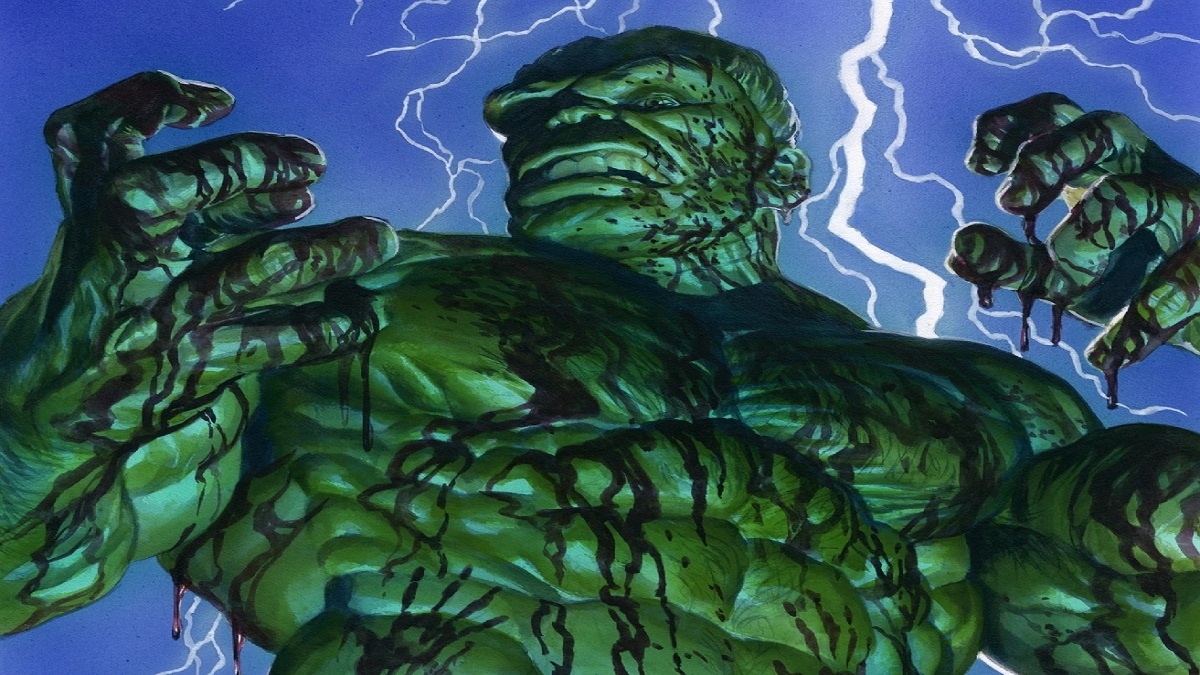
Among Marvel characters, The Hulk stands out as one of the most enduringly popular figures. At one point, it wasn’t the Fantastic Four, Captain America, or Iron Man who held the top three spots, but rather Spider-Man, Wolverine, and the Hulk. Compared to other Marvel heroes, The Hulk has always been distinct. Characters such as Spider-Man and Thor dedicated themselves to shielding Earth’s inhabitants, whereas The Hulk yearned for solitude. Although he occasionally saved the day, it was often unintentionally. The Hulk embodies a beastly nature, and the most captivating tales about him utilize this trait effectively. The Hulk is not your typical superhero and doesn’t thrive in traditional superhero settings.
For a long time, people overlooked that when the Hulk was first introduced, he resembled Dr. Jekyll and Mr. Hyde, with the Hulk emerging at night and Bruce Banner unable to manage the beast he transformed into. Before the concept of horror superheroes became commonplace, the Hulk utilized elements from monster tales to narrate the story of Bruce Banner’s fractured mind. Lately, Marvel has adopted this interpretation of the Hulk, largely due to a comic series titled The Immortal Hulk.
The Immortal Hulk Was Hulk Horror at Its Finest

In essence, “The Immortal Hulk” comic series retained many elements reminiscent of traditional Hulk tales. However, it delved deeply into the horror aspect that has always been inherent in the character. The transformations of the Hulk were portrayed as extreme body horror, and the Hulk emerged as an unpredictable, cunning monster that had always been a part of the character’s essence. “The Immortal Hulk” took the central question from the old Silver Age Hulk comics – “Is he a man or is he a monster?” – and pushed it to its extreme limit. The comic featured appearances by Hulk’s most formidable adversaries, but it was less about Hulk battling evil in his unique manner, and more about the terror that the Hulk instilled in the world, as well as in Bruce Banner himself. “The Immortal Hulk” stands out as a horror masterpiece, underscoring the fact that the Hulk excels in scary narratives. The Hulk is a rage monster whose power potential is limitless; he grows stronger with each escalating bout of anger. His destructive capabilities surpass those of most supervillains, and “The Immortal Hulk” served as a stark reminder of this. When Marvel introduced a less horror-oriented story after it, fans reacted negatively, prompting the publisher to return to a more horror-focused Hulk comic with the latest volume of “The Incredible Hulk”.
Throughout the years, we’ve been treated to numerous exceptional tales about the Hulk. Peter David’s tenure on The Incredible Hulk showcased masterful psychological storytelling, delving into the terror inherent in co-existing with a monster like the Hulk. The Bruce Jones era of The Incredible Hulk in the early 2000s centered around the resurrection of the beast. While narratives such as “Planet Hulk”, World War Hulk, and the entire Red Hulk narrative moved away from the horror aspects of the past, it’s hard to dispute that the Hulk thrives in a horror context. The reason the Hulk struggles to maintain longevity as an Avenger or Bruce Banner’s heroic persona is because the horror elements are integral to his character. Abandoning the horror aspects of the Hulk can only last for so long. Hulk horror stories offer a wide range of explorations, while traditional superhero Hulk tales eventually grow monotonous. It’s easy to become jaded watching the Hulk destroy everyone in his path repeatedly. We all enjoy seeing the Hulk pummel the Avengers, but if every Hulk story followed that pattern, it would soon become tiresome. One of the main issues with the Hulk in the MCU is their persistent disregard for the horror foundations of the character, opting instead to mold him into a humorous MCU figure.
The Hulk Is Marvel’s Premiere Horror Character

To put it simply, when it comes to the genre of horror in comic books, DC tends to outshine Marvel due to Marvel’s focus on superheroes. For instance, Ghost Rider is often seen as a vengeful spirit, but his tales are more typically classified as supernatural superhero stories rather than true horror. This pattern holds true for many characters that could be categorized as horror within the Marvel universe. The Hulk is an exception because exceptional writers have effectively portrayed the terror and fear associated with the Hulk and what he embodies.
As a passionate movie-goer, I’d say before “The Immortal Hulk” breathed new life into the concept of Hulk as a terrifying horror character, the Hulk was in a bit of a rut. After the Red Hulk saga concluded, Marvel seemed to struggle with telling Hulk stories that fit the MCU mold, and they just didn’t click. By the time the Hulk met his end, he was in a pretty grim state. But “The Immortal Hulk” rescued the Hulk as a character by injecting that necessary dose of horror into the narrative. While the Hulk can still work in traditional superhero stories, especially when appearing in other books, solo Hulk tales really thrive with a touch of the macabre.
https://comicbook.com/comics/news/all-hulk-colors-marvel-ranked-grey-blue-red-black/embed/#
Read More
- How to Get the Bloodfeather Set in Enshrouded
- Gold Rate Forecast
- 32 Kids Movies From The ’90s I Still Like Despite Being Kind Of Terrible
- One of the Best EA Games Ever Is Now Less Than $2 for a Limited Time
- 4 TV Shows To Watch While You Wait for Wednesday Season 3
- Best Werewolf Movies (October 2025)
- These Are the 10 Best Stephen King Movies of All Time
- 10 Movies That Were Secretly Sequels
- Auto 9 Upgrade Guide RoboCop Unfinished Business Chips & Boards Guide
- USD JPY PREDICTION
2025-07-07 21:11